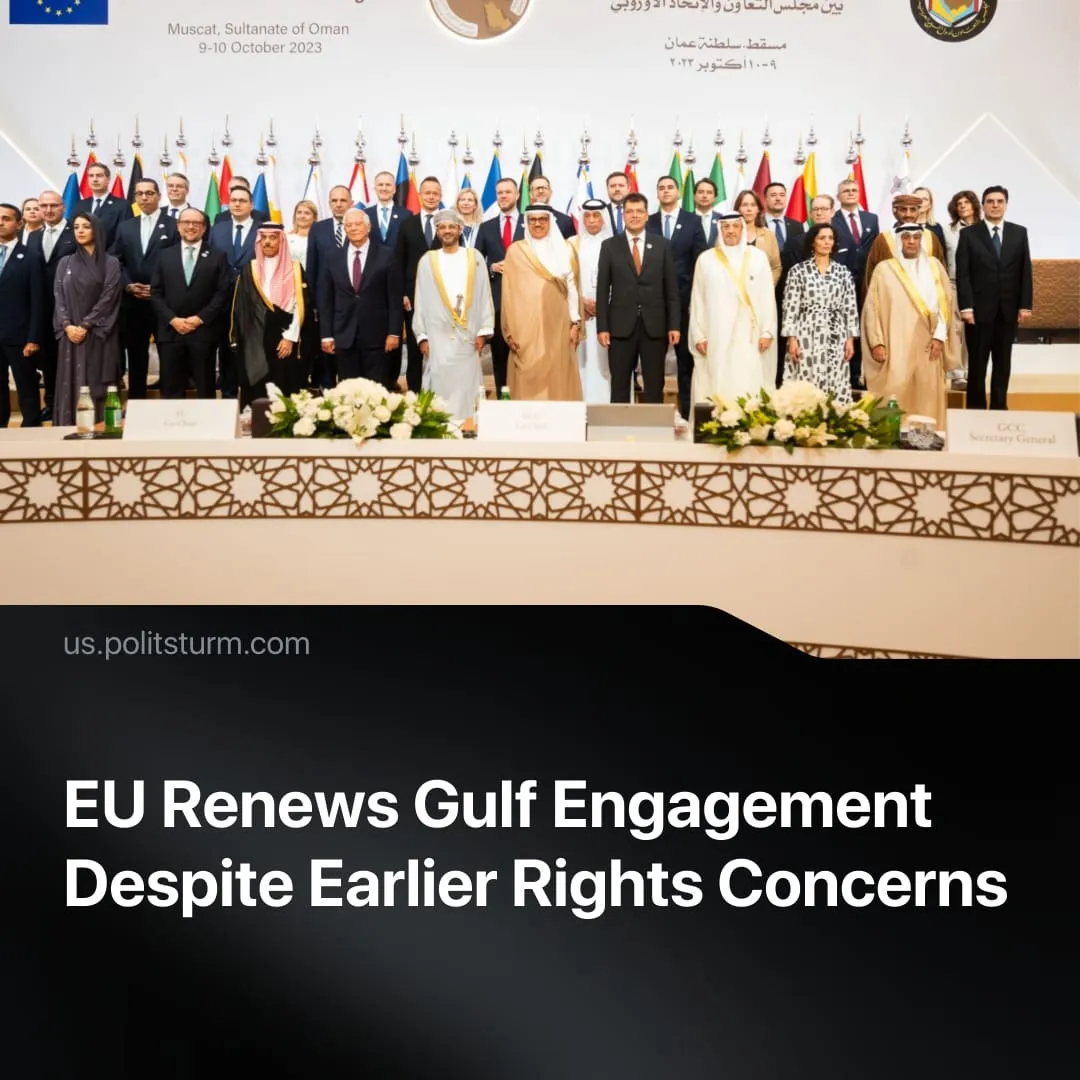The EU quietly dropped its former human-rights pretence for trade and strategic expansion in the Gulf.
Details. The EU opened formal free-trade negotiations with the UAE in April and revived groundwork for a broader EU–GCC (Gulf Cooperation Council – a political and economic bloc of six Gulf states) partnership, signalling a return to structured economic engagement after years of stagnation.
► Following the EU–GCC summit in October 2024, ministers met again in October 2025 and welcomed the second Regional Security Dialogue, which had taken place earlier in April. They announced new workstreams on counter-terrorism, maritime security, cyber coordination, and emergency management. Cooperation has since expanded across security and energy, supported by multi-year “green-transition” programmes and finance forums in Abu Dhabi, and further talks were agreed.
► Joint statements in 2024–25 paired these initiatives with calls for a Gaza ceasefire and a two-state solution, and the EU has pressed to reactivate its Rafah border mission.
► Europe expects alignment against Moscow, while Gulf capitals, tied to Russia through OPEC+, pursue an independent strategy of maintaining neutrality.
Context. Earlier EU–GCC trade talks collapsed in 2008, when the EU, negotiating from a position of greater energy security, used human-rights and labour issues as a pretext within its broader bargaining posture. Such issues persist – from executions and due-process abuses, to guardianship laws – but are no longer named barriers, as these "concerns" have been folded into negotiations and subordinated to strategic and investment priorities.
► The EU’s own record of migrant exploitation and “modern-slavery” conditions, sustained through transit-visa and subcontracting schemes, exposes this rhetoric as purely instrumental.
► Europe is attempting to restore its influence in the Gulf, having lost trade leadership to China and India – a shift pushing Brussels to rebuild commercial and investment ties with the region. With the US relationship remaining unpredictable, the EU is broadening its alliances to protect energy supplies and strengthen political leverage, making Gulf partnerships strategically valuable.
► The EU has sought to establish an independent imperialist position by establishing its own trade relations and expanding its areas of influence, such as its continued interest in supporting Ukraine or in recognising a Palestinian state before the US.


